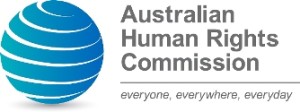 Parents of women with severe disabilities are being forced to take their daughters overseas for hysterectomies after their requests for the procedure were denied in Australia, a leading endocrinologist has told an inquiry into involuntary sterilisation.
Parents of women with severe disabilities are being forced to take their daughters overseas for hysterectomies after their requests for the procedure were denied in Australia, a leading endocrinologist has told an inquiry into involuntary sterilisation.
John Carter, the father of a 31-year-old daughter with a moderately severe intellectual disability, said laws on sterilisation can place an unfair burden on people with disability and their families.
”We are aware of instances where parents have taken their daughters to Thailand or New Zealand to have a hysterectomy because their request to have a hysterectomy performed in Australia was rejected by the Guardianship Tribunal,” he wrote in his submission to the Senate inquiry into involuntary or coerced sterilisation of people with disabilities in Australia.
”For a country that is allegedly as caring and compassionate as Australia, to have citizens undertaking such trips strongly suggests that the current situation is far from ideal and we believe that significantly greater flexibility needs to be demonstrated in our legal system and by bodies such as the Guardianship Tribunal when deliberating on applications.”
The inquiry also heard a submission from the mother of a woman with a severe intellectual disability who argued that her daughter has the same rights as her sisters. ”As such, the notion of sterilisation for her is as irksome, and unwarranted, as it would be for her siblings,” she wrote in her submission.
A mother of a 16-year-old said her daughter had the mental age of a three-year-old and was unable to make an informed decision about her fertility. ”As a mother of a disabled person I make the decisions that she cannot,” she wrote. ”Therefore this decision should include the input of the one person who cares for her every need in life. It’s not about me, but about enabling me to provide the best support possible for my scared and overwhelmed daughter.”
The Australian Human Rights Commission recommends that sterilisation of children without their consent be criminalised along with the taking of a disabled child overseas with the intention of having them sterilised. The United Nations considers involuntary sterilisation a form of torture and an act of violence against children.
The hearings continue with the inquiry due to report on June 19.



